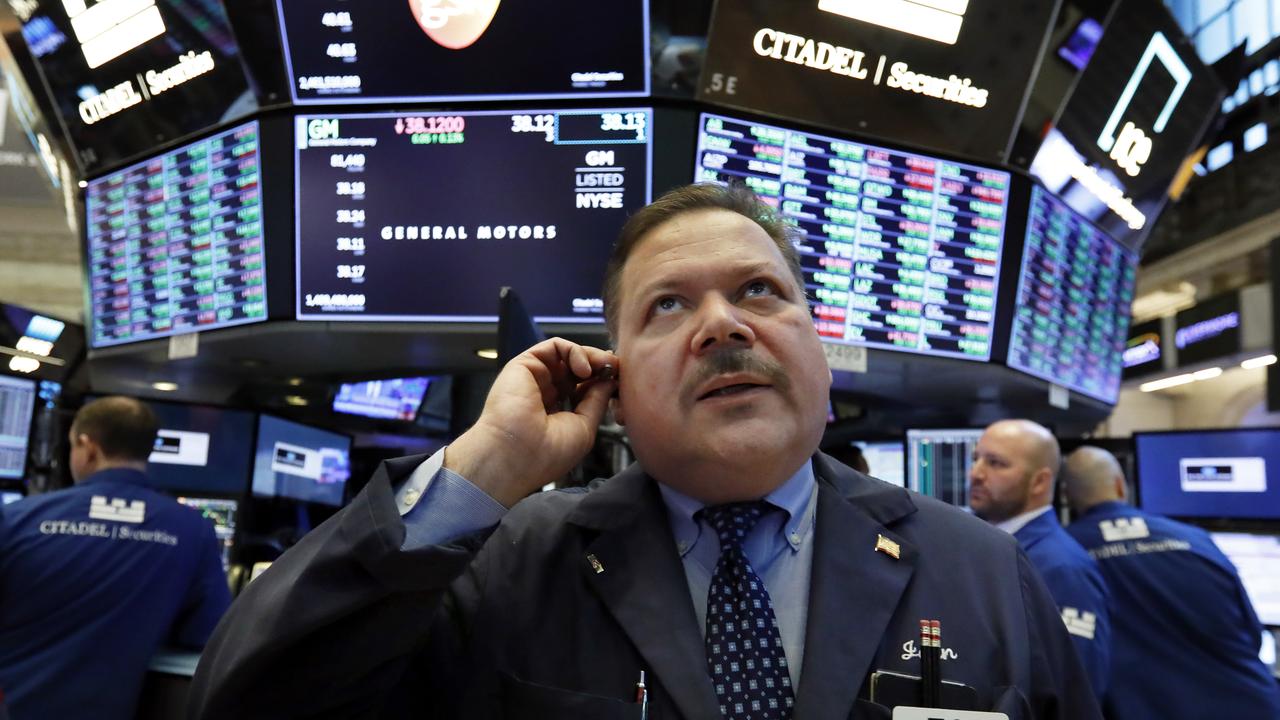US corporate debt worth a punt: Standard Life
Chris Heckscher of Standard Life says US corporate investment-grade credit is offering good value.

Australian 10-year commonwealth government bond yields jumped 9 basis points to a fresh six-month high of 2.65 per cent on Monday, hitting the interest rate-sensitive property and utilities sectors of the share market. The benchmark S&P/ASX 200 share index fell 0.5 per cent to 5345.7 points after surging in the wake of Donald Trump’s surprising US election win last week. US Treasury bond yields hit a ten-month high of 2.21 per cent as investors continued to price in the risk of higher inflation, greater bond issuance and a faster pace of US monetary policy tightening under Trump.
Mr Heckscher says Australian corporate credit valuations are “OK but not great”, particularly given the property exposures of the banks and lingering concerns around industries tied to China. But while emerging-market debt has lagged due to concerns about Trump’s protectionist policies, US spreads narrowed about seven basis points after the US election.
While he expected more sustained risk-aversion on a Trump victory, Heckscher says Trump’s clean sweep reduces potential for gridlock and increases potential for expansionary fiscal policy.
He now sees a good chance of a further extension of the US credit cycle.
And in that regard, he notes that foreign buyers in the US dollar corporate credit market have become very important in recent years.
“Three or four years ago, about 15 per cent of the demand for US dollar corporate credit was coming from foreigners,” Heckscher says. “Now the marginal buyer is coming from places like Taiwan, Japan and Europe. Bond yields went up a lot in the US last week, but they went up less in Europe, so it US corporate bond yields look even better to foreign buyers. That area of demand is probably going to remain strong. And yields are getting to a point where the traditional buyers in the US dollar market — the pension plans and insurance companies — corporate bond yields are reaching a point where it’s attractive to them.”
Developed-market credit did pretty well last week, but high-yield was a mixed bag and emerging-market debt suffered from Trump’s tough stance on trade. Still, Heckscher expects more of Trump the pragmatist than Trump the populist.
“Currently we have more risk in our portfolios versus the benchmark, but not a lot, and certainly not as much as we have done in the past,” Heckscher says.
Before the election, his funds avoided US pharma companies because of Hillary Clinton’s desire for greater regulation.
He was also overweight on energy, based on his view that the worst of the shake-out in the US energy sector was over after the oil price meltdown at the start of the year.
“They have been doing everything that bond holders want to hear, including issuing equity, which is music to our ears, so we have an overweight in the energy credit area, and Trump winning probably gives a little bit more conviction there because he’s going to let them drill wherever they want, so energy we like,” Heckscher says.
“Multinationals, like healthcare or pharma, are going to be able to bring money back into the US. They won’t issue as much debt. That’s another technical positive for the market, so we’re feeling pretty good about things, but we’ve had more conviction in the past.”
To some extent too, Heckscher feels Trump is now in a “honeymoon” period typical for US presidents before his inauguration in January.
Of course, the market could be getting carried away with its assumption of much greater US infrastructure spending boosting US economic growth and bond issuance, given that Trump’s plan appears to be around incentivising the private sector to spend on infrastructure via tax breaks, but Heckscher feels Trump’s clean sweep means this outcome is much more likely than before.
Emerging markets are more tricky, though, because while an extended US business cycle and stronger US economic growth could help, Mexico and Brazil have been suffering from a fear of greater trade barriers from the US, and Trump’s pre-election stance on China has suggested real potential for a trade war with the world’s No 2 economy.
Heckscher’s best bet is that the US corporate credit market will do pretty well, and he prefers US high-yield credit over emerging-market credit.
He’s also preparing for knock-on effects of rising popularism and anti-establishment sentiment around the world, with Europe shaping as the next pressure point after Brexit and Trump.
“Definitely it could widen peripheral European bond spreads, putting downward pressure on the euro, upward pressure on the US dollar. When we look at US banks, for example, versus Europe, our banks are better capitalised and they have less of that kind of political risk. We think in Europe there definitely areas you want to avoid — Italian banks, some of the German banks — that sort of thing.”







Chris Heckscher, the Boston-based senior vice-president of fixed income and global high-yield credit at Standard Life, says US corporate investment-grade credit is offering good value even as US Treasuries lead a further sharp sell-off in the global bond market after the US election.